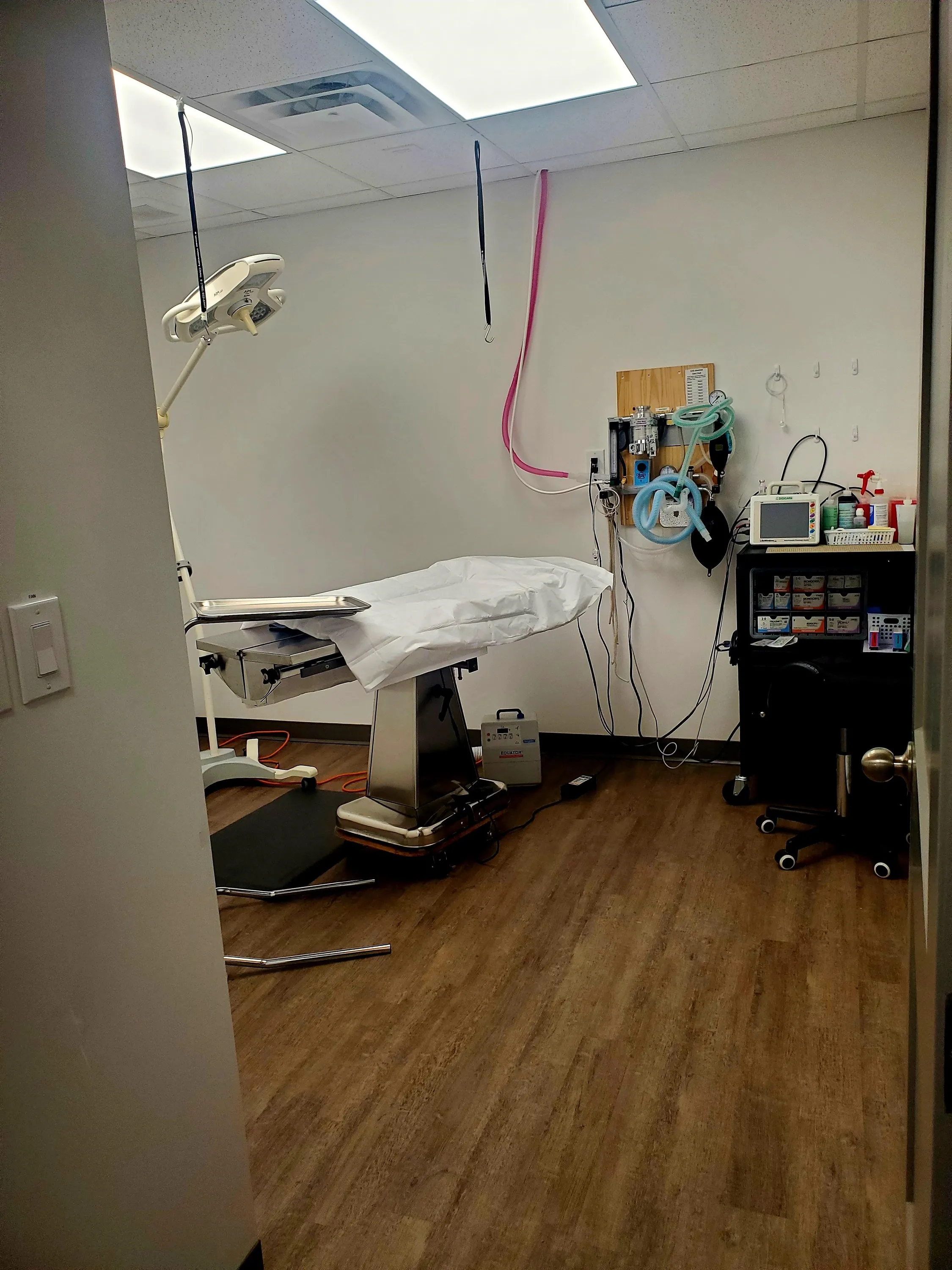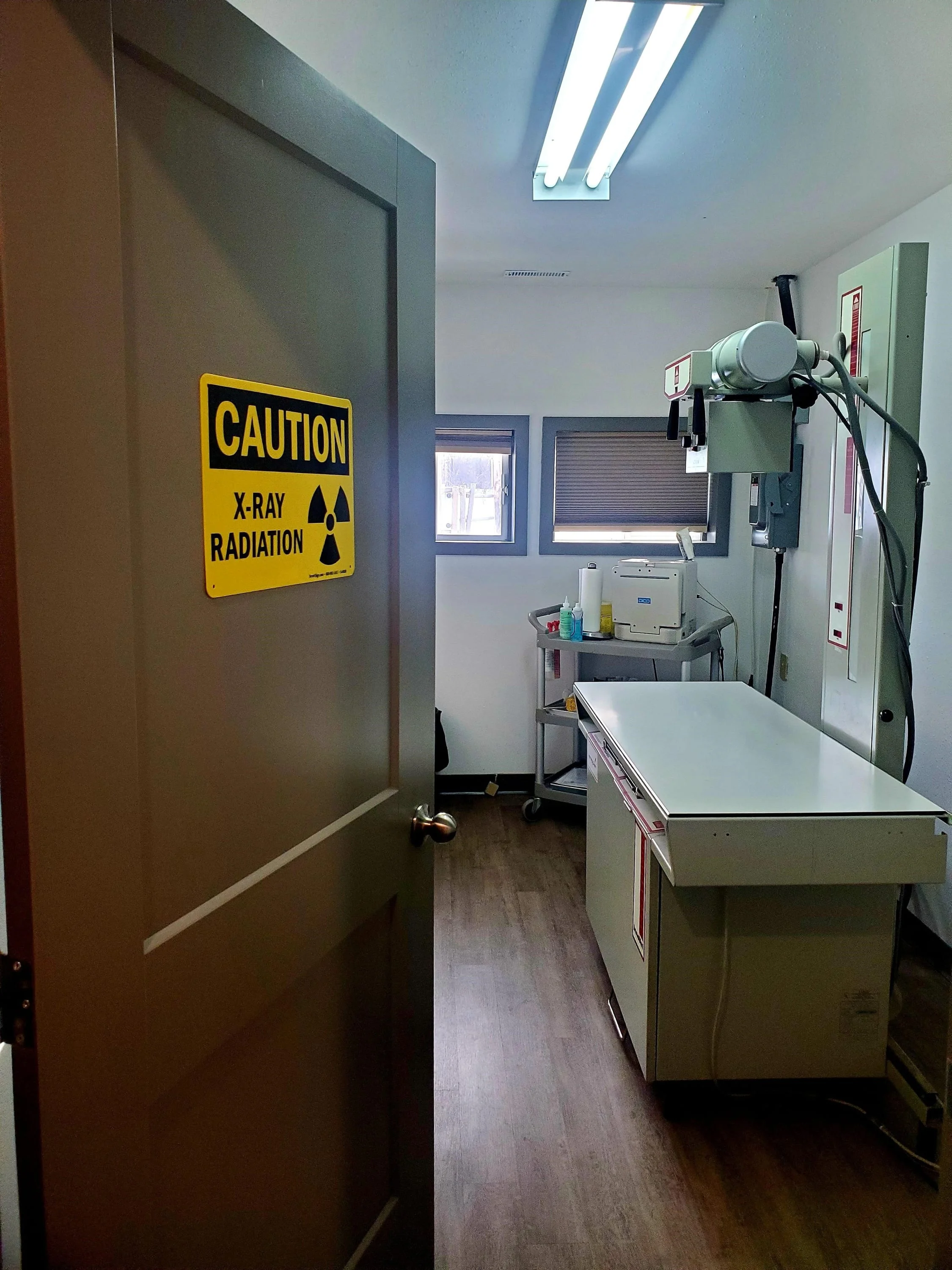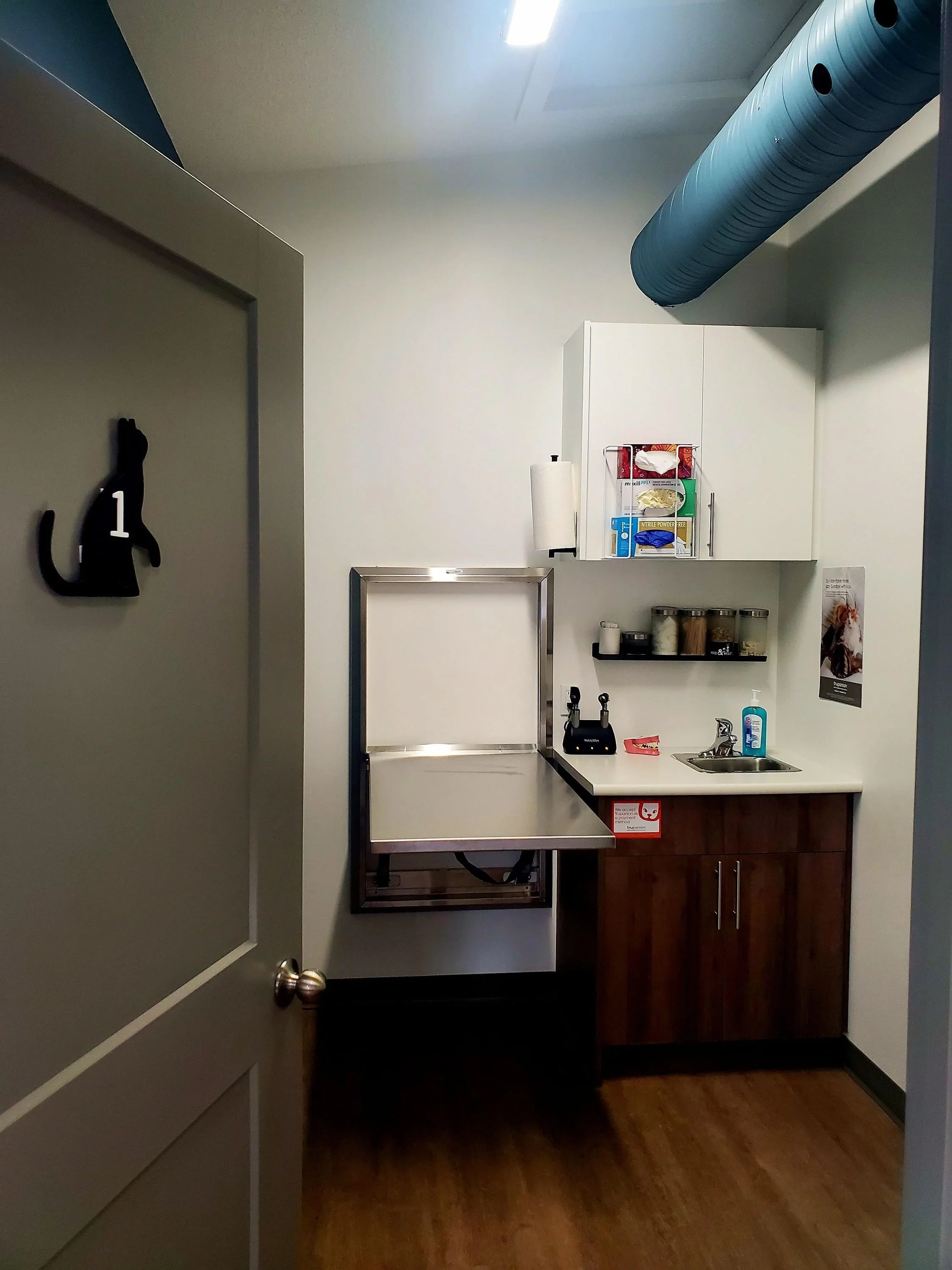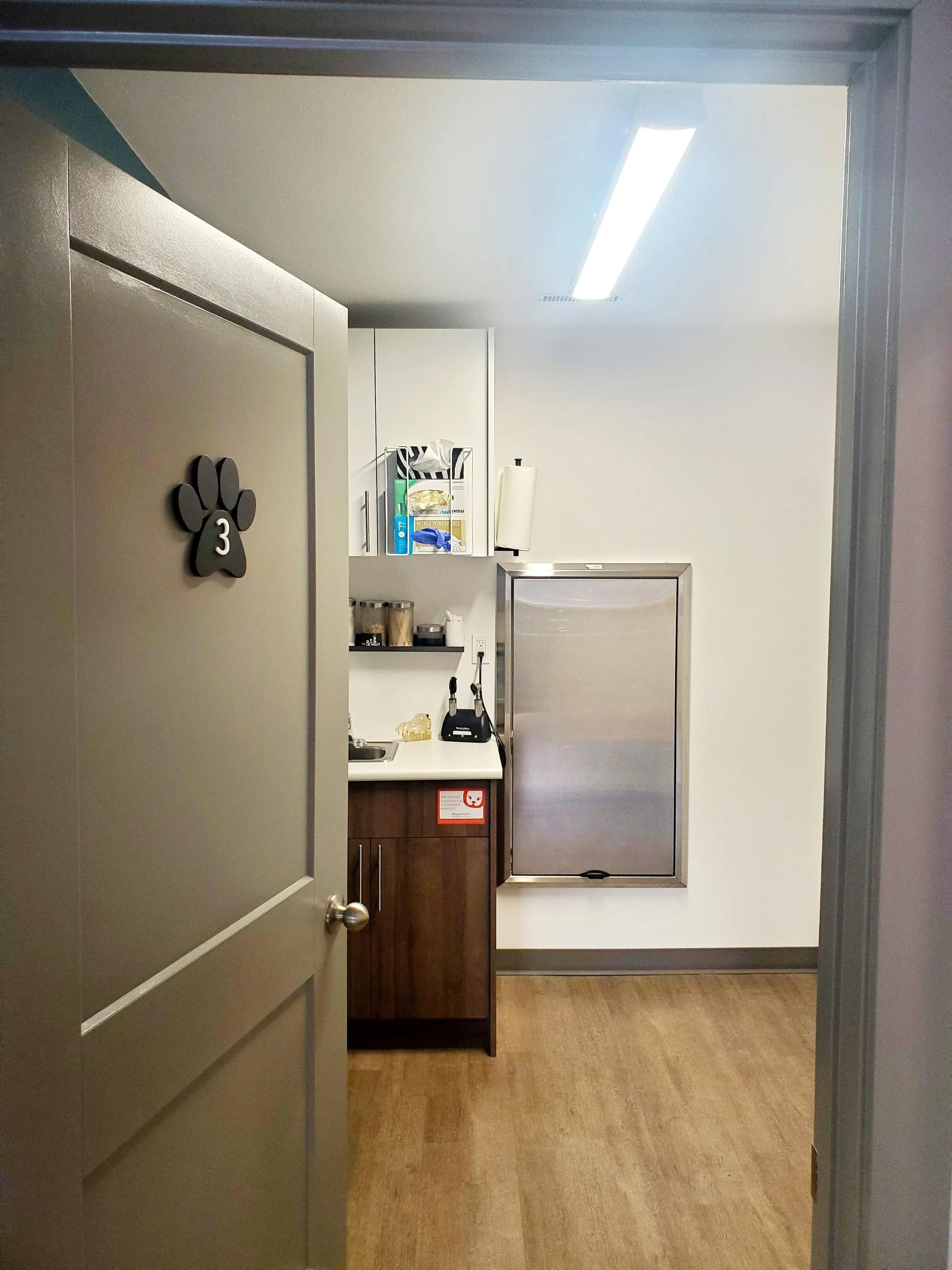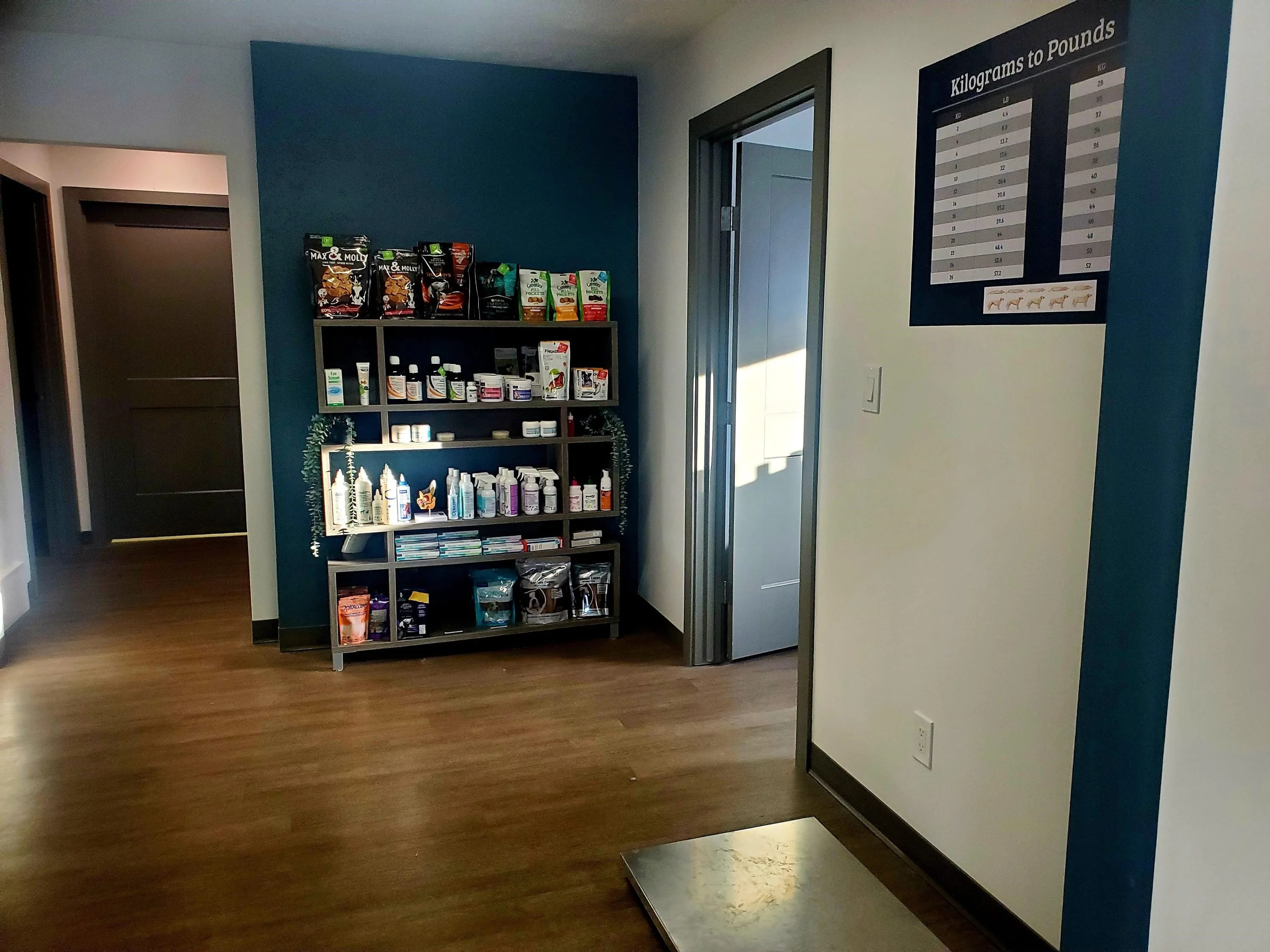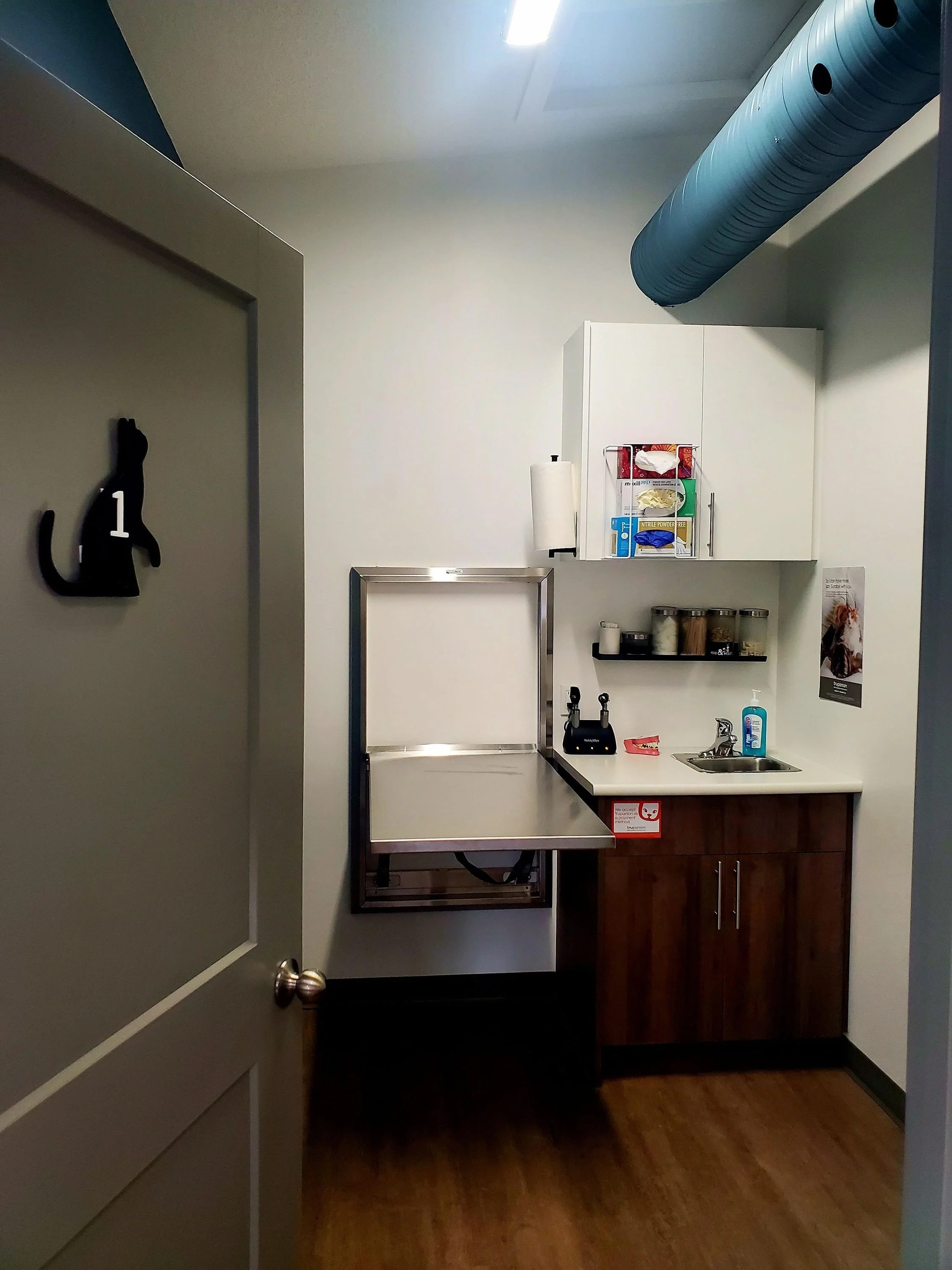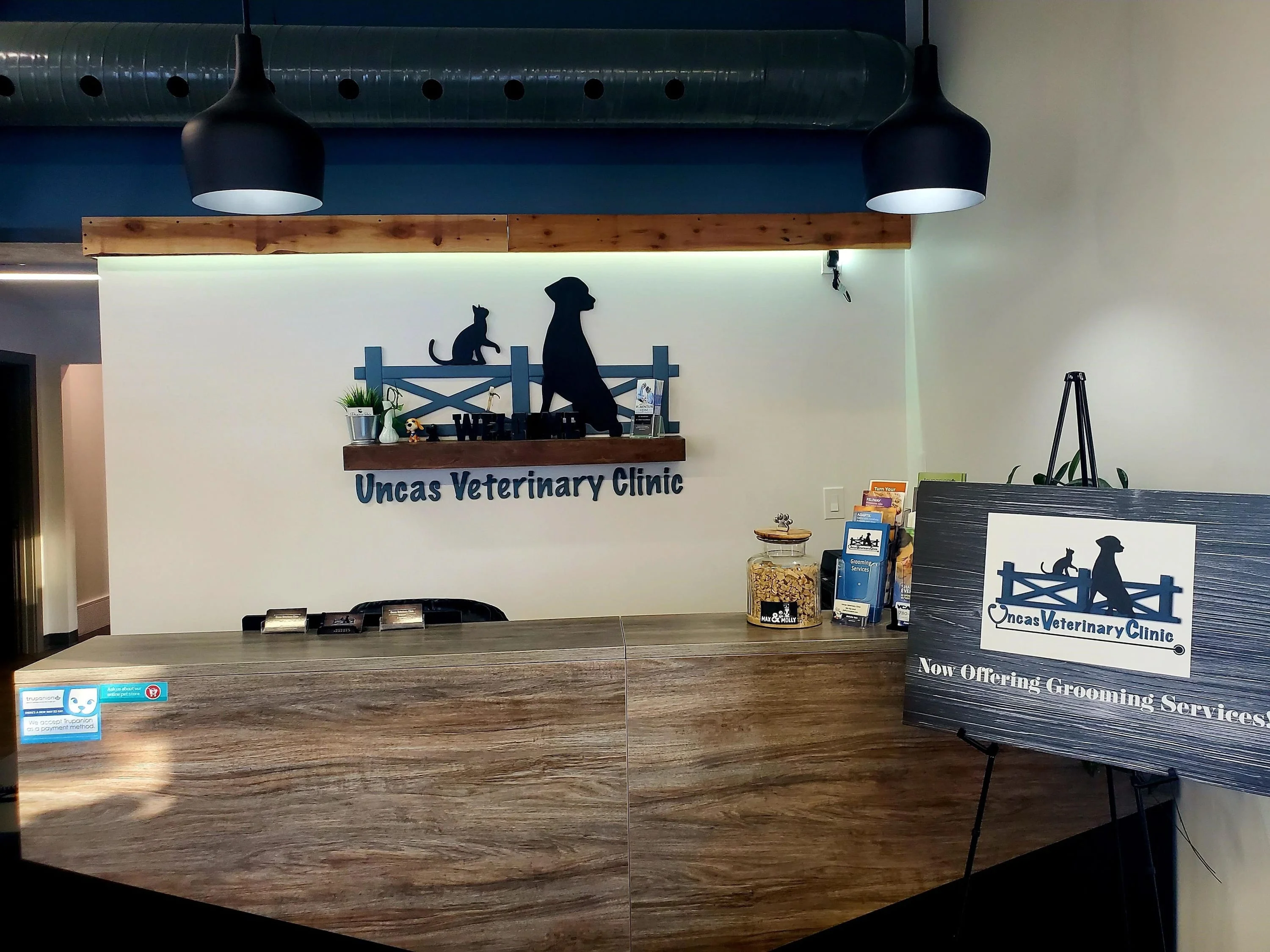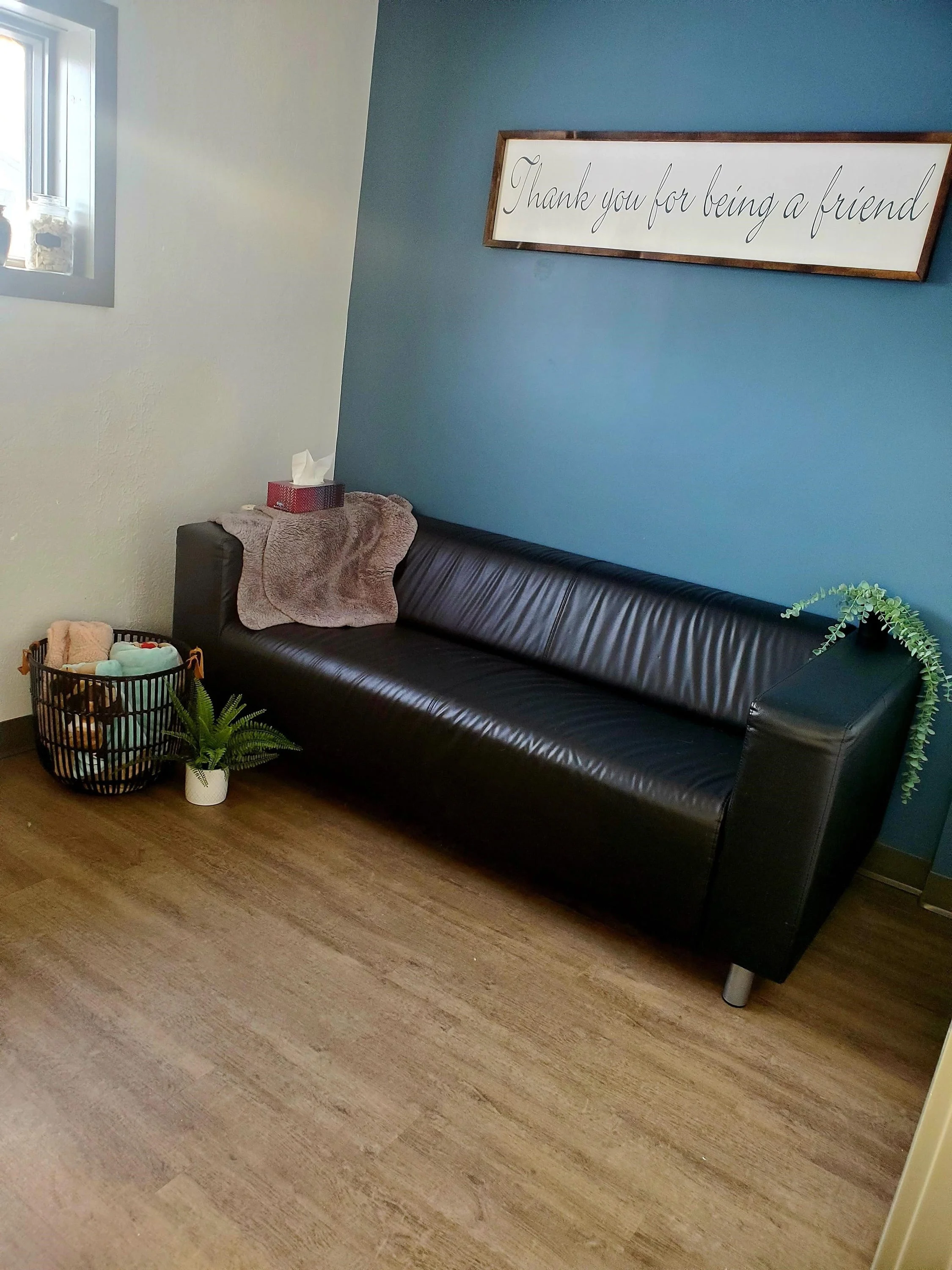RABBIT CARE
Diet
- See attached Pyramid
- Alfalfa hay is good for young and growing rabbits, but timothy, orchard and grass hay is recommended for all others
- Pellets should be limited to 1 Tbsp/day and used to monitor whether or not your rabbit is eating
- Vegetables are a great addition, 75% of what you provide should be leafy greens. *Caution with leafy greens high in oxalates (see pyramid)
- Fruits can be a great snack, but rabbits don’t need much sugar/starch in their diets
- Taking a rabbit to graze outdoors is appropriate as long as the lawn is pesticide free. They love dandelion greens!
- Do not feed grass clippings
- Always provide free choice water
Routine Care
- Nail trimming as needed
- Teeth trimming- not usually needed if your rabbit is on a proper diet and has appropriate skull/dental anatomy
Vaccines
- No regular vaccines are needed
- Depending on individual risk, rabies vaccine may be recommended. Ask Uncas Vet Clinic about your rabbit’s situation
Deworming
- Rabbits can get fleas and mites just like other animals. Monthly deworming is recommended on rabbits that are housed outdoors, or have housemates that go outdoors
Major Health Concerns
- Teeth
- The basis of a healthy rabbits is its teeth
- Some rabbits such dwarf and lop eared rabbits have different shaped skulls that predispose them to having poorly positioned teeth. Depending on how severe the disease is these rabbits may develop: overgrown teeth, sharp edges, tongue entrapment and dental abscesses
- Your rabbit should have an annual oral exam
- Stomach Shut Down
- Most common thing rabbits come to the clinic for is a decreased appetite or less feces production
- Left untreated you rabbit’s entire stomach and intestines shut down and it ultimately fatal
- Reasons for this occurring can be stress, dehydration, pain from other disorders, intestinal blockage or insufficient dietary fiber
- This is considered a medical emergency and needs to be seen by a veterinarian!
- Respiratory Disease
- Sneezing and/or watery eyes can be a sign that your rabbit has come down with respiratory disease
- There can be many cause such as bacteria, viruses, dental disease and fungus
- Urinary Disease
- It is important to monitor for increase in urination, urination outside the litterbox, straining, blood in the urine, chalk or sandiness around the hind end, and wet hair/rash around the hind end
- A veterinarian can inform you on how to prevent this
Spaying and Neutering
- Why?
- Removes risk of reproductive cancers (ie. Uterine, testicular)
- Eliminates reproduction
- Less chewing/digging
- Less aggression
- Decreased urine spraying
- Allows your rabbit to have a companion (no risk of breeding, and less aggression)
- When?
- Females: 4-6 months
- Males: After 3.5 months
- Pain medication will be provided. Please ask us if you have any other concerns!
Fun Facts
- Can be litter trained
- Rabbits are great jumpers, can compete in “Bunny Agility”
- Rabbits can reach speeds of 30mph
- Live on average 8-10 years
- Rabbits are not rodents
